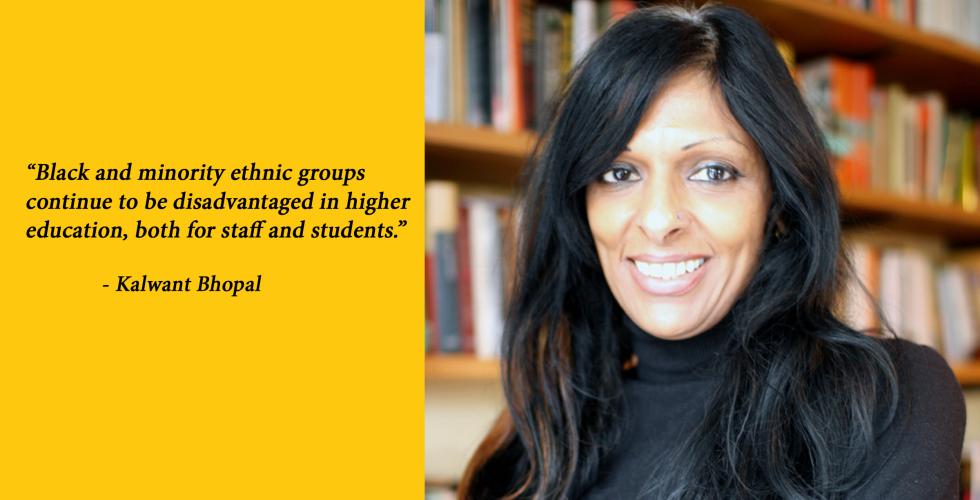Looking to reap the benefits of internationalization
In recent years some have asked whether the ceiling has been reached for the number of foreigners in Norwegian academia. The Young Academy of Norway would rather have a debate on how to best take advantage of this new diversity.
The Norwegian research system is growing increasingly internationalized in general, and the number of foreign researchers in Norwegian academia has expanded widely and at a very fast rate.
Internationalization is a stated research policy objective, but in the last few years a debate has emerged in which some are asking whether there are now too many foreigners in Norwegian research, while others believe there is much to be gained from still broader internationalization.
There is surprisingly little knowledge about how this process of internationalization has taken place and what its many impacts may be. This is part of the reason why the Young Academy of Norway (AYF) included the issue of internationalization and diversity in the large-scale survey sent out in 2018 to researchers aged 45 and under who are employed at Norwegian research institutions.
AYF hopes the survey results can help to lift the internationalization debate to a broader level, from focusing primarily on the challenges related to having many foreigners in an academic environment to a focus on diversity in general. The organization points out that the internationalization process also provides an opportunity to discuss issues such as power, representation and equal treatment in academia.

Young researchers support internationalization
“We attract many skilled, productive researchers, and personally I think much of the debate so far has been too problem-oriented. Certainly internationalization entails challenges, but I believe that it carries huge benefits that are being somewhat overlooked,” says Carl Henrik Knutsen, Professor of Political Science at the University of Oslo.
“And the AYF survey shows us that young researchers overall view internationalization in a very positive light.”
Together with colleagues Marta Bivand Erdal of the Peace Research Institute Oslo (PRIO) and Arnfinn H. Midtbøen of the Institute for Social Research, Knutsen presents the AYF survey results in an article in the Norwegian journal Nytt Norsk Tidsskrift, in addition to a longer, more detailed report (Norwegian only).
The survey respondents were asked to rank their position on the statement “In my field, internationalization is beneficial.” On a scale of 1 (strongly disagree) to 5 (strongly agree), the average response was roughly 4.5.
“At the same time, it is not the case that everyone is saying that everything is great. These issues are difficult and complex. There are good and less good ways to deal with the challenges, and what we are trying to do is to reap the benefits of internationalization while minimizing the problems, for example those related to policies for Norwegian language training,” says Knutsen.
The debate about internationalization points out that foreign researchers who lack adequate Norwegian language skills and understanding of Norwegian culture can pose challenges to the universities’ social mission. In response to the statement “There are too many researchers of non-Norwegian origin in Norwegian academia”, responses averaged 2.3, so opinion is more divided on this issue.
More diversity can lead to friction
A less homogenous population of researchers can be highly beneficial in research, but with it comes the risk of friction and differential treatment. The survey therefore asked respondents if they had personally experienced discrimination of various kinds.
Forty per cent answered that yes, they had experienced at least one incident of discrimination in the past two years. Of these, a few stated that the discrimination had occurred in connection with formal processes of recruitment or promotion. Far more had experienced differential treatment in informal settings, such as rude comments or feeling excluded in the working environment.
“It is hard to measure the potential for improvement when we don’t have a clear baseline for what comprises major or minor discrimination. But it is still worth noting that there is a significant difference between groups,” says the professor.
For example, women report having experienced more discrimination than men, and foreign-born researchers report higher rates than Norwegian-born. Among women, 19 per cent have experienced negative comments, versus 12 per cent of men.
Among foreign-born researchers, 22 per cent have experienced informal discrimination, versus 15 per cent of researchers born in Norway. What’s more, the type of discrimination corresponds to group identity: women experience discrimination because they are women, while foreigners feel discriminated against for being foreigners.
Both being a woman and being foreign are associated with a consistently higher risk of experiencing discrimination.
“So it’s not the case here that certain groups are overly sensitive and feel discriminated against in all contexts. These groups report quite similarly regarding other factors, but on the issue of discrimination their experience is markedly different,” says Knutsen.
Mostly informal discrimination
Knutsen is glad to note that the incidence of formal discrimination appears to be lower than informal discrimination.
“But the informal processes are also important and can be dramatic on an individual level. In addition, it is very clear that experiencing discrimination has ramifications for whether that individual will recommend a career as a researcher to others. So this may also have long-term impacts on our researcher recruitment pool,” he points out.
“If this means that talented women and non-Norwegian researchers hesitate to pursue a research career in Norwegian academia, then we risk losing out on some of the best minds.”
Informal discriminatory treatment can be difficult to pinpoint. AYF hopes the report can help to raise awareness about the challenges. It might just be that much of the informal discrimination experienced is more a matter of misunderstanding or thoughtlessness rather than hurtful intent.
“Much of the informal discrimination occurs at the workplace, and it can be hard for, say, a government minister or rector to know what is happening. So greater awareness, also among peers and lower-level management, can be important in itself.”
“I also believe that leaders at all levels of academia need to think about concrete measures. This is not easy, because measures implemented in one area may have unintended consequences in other areas. But it is vital that we keep discussing how best to reap the benefits of internationalization,” Knutsen believes.
Must counteract group effects
“Academia is a highly competitive sector. Is it realistic to believe that we can cultivate a warm, inclusive working environment under these conditions?"
“It is unlikely that all discrimination will cease, but I think nonetheless we can still achieve a lot. It is especially unfortunate that some groups feel they are the targets of greater discrimination than others,” says Knutsen.
“Since it appears we are managing to keep the percentage of Norwegian-born men who feel discriminated against relatively low, it should be possible to bring the proportion among the other groups down to similar levels. Any one of us can inadvertently blurt out a thoughtless comment on occasion, but there is no good reason that women should be subjected to those comments more often than men. In any case, it won’t hurt us to strive to do better!
Translated by Darren McKellep and Carol B. Eckmann.
On 12 September 2019 the KIF Committee, in collaboration with the Young Academy of Norway (AYF) and the Peace Research Institute Oslo (PRIO), organized a breakfast seminar on diversity in academia and young researchers’ experiences with internationalization, discrimination and sexual harassment.
Results from the AYF survey on internationalization, diversity and discrimination were presented for discussion.
The survey indicates that young researchers in Norway are positive towards internationalization, but that challenges have also emerged. The responses also show that foreign-born researchers experience significantly more discrimination than their Norwegian-born colleagues.
Read the report Rom for mangfold i akademia? [Room for diversity in academia?] (Norwegian only)
The survey’s main findings have been published in the article Internasjonalisering, mangfold og diskriminering i norsk akademia [Internationalization, diversity and discrimination in Norwegian academia] in the Norwegian journal Nytt Norsk Tidsskrift.


